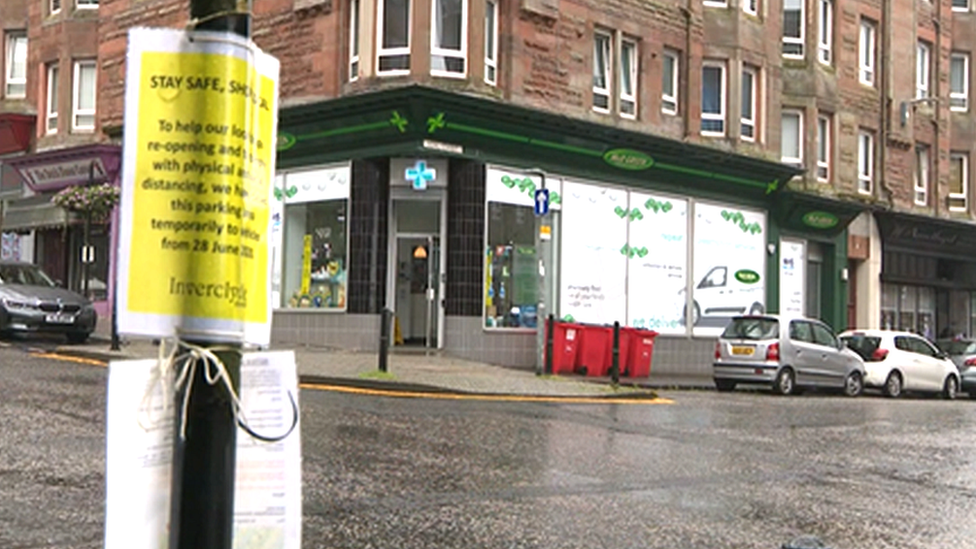The industrial giant that became Scotland's Covid capital
- Published
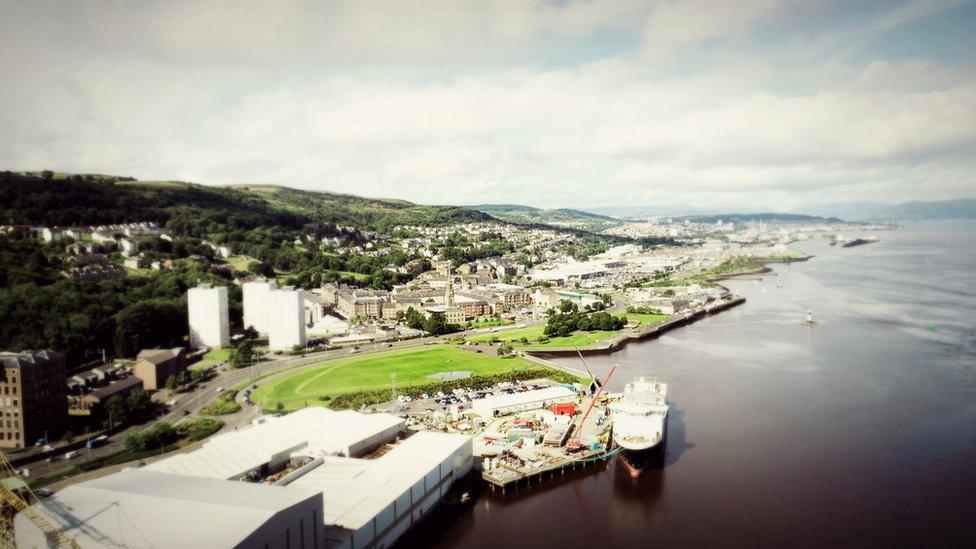
Out of 12 yards that operated in Inverclyde only one now remains
Gordon Kay was one of thousands of men who performed dangerous and exhausting work in the shipyards of Inverclyde in the 1970s.
It was a time when some local firms were reporting a surge in their workforce, with ambitions to recruit hundreds more across the 12 yards in the area.
"It was a dirty job," Gordon said. "When I was working with asbestos we had two rubber suits and two masks for about 40 of us.
"You had a cloth you wiped it down with and that was it."
Scott Lithgow - one of Inverclyde's largest shipbuilding employers - had increased its workers from 7,000 to 8,000 in the early 70s.
Its managing director estimated that every household in Port Glasgow and Greenock "depended" on them for a livelihood.
But Inverclyde faced growing competition, especially from abroad, and the yards began to close until now there is just one left and it was taken into public ownership last year.
'I loved the yards - I miss the way it was'
Gordon Kay worked in the shipyards during the 1970s
Now 72, Gordon has spent years battling asbestosis - a chronic lung disease which results from inhaling asbestos particles.
Between 1983 -2017, Inverclyde has the second highest mortality rate from asbestosis in Scotland after West Dunbartonshire, which includes the shipbuilding area of Clydebank.
Despite his illness, Gordon felt relatively fit and enjoyed walking for miles outdoors before the coronavirus pandemic.
But when Covid arrived in Scotland, he was among the first to be diagnosed. He spent nine weeks in hospital battling the virus - three of which were in intensive care.
Gordon believes his pre-existing condition is to blame for how severely he was hit by coronavirus.
But he still holds a great fondness for how the area used to be.
"I loved it," he said. "I think it was the crowds and the atmosphere in the yards.
"As the yards slowly declined it became like a ghost town. It's so run-down and deprived, shops shut, buildings boarded up. I just kind of miss the way it was."
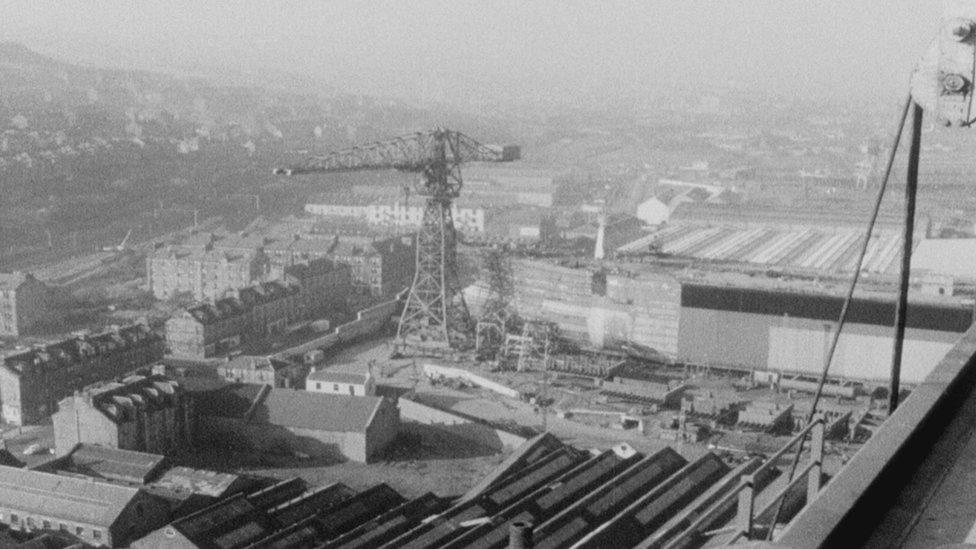
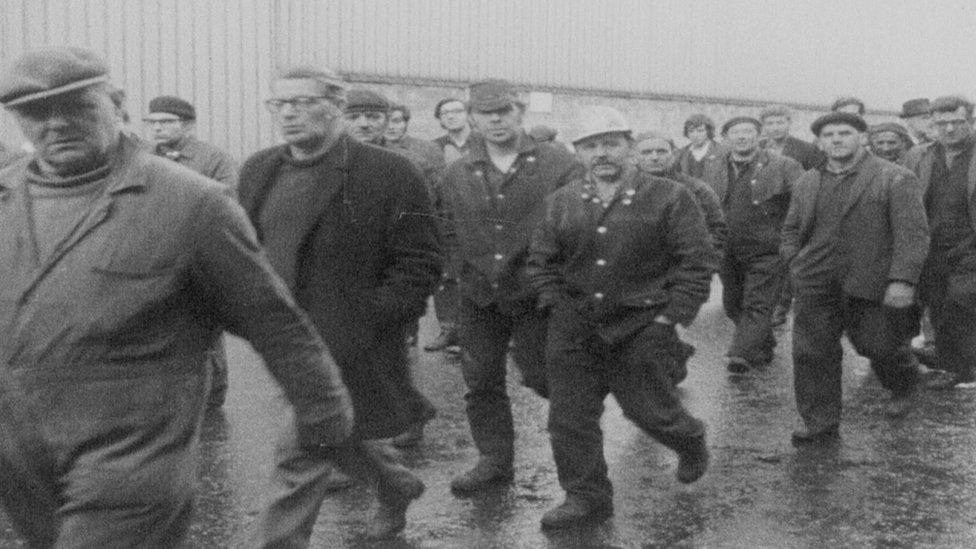
Thousands of men were employed in dangerous jobs
Deprivation, unemployment and addiction
Inverclyde is now an area of paradox - its sparkling coastline and rolling hills are not unlike neighbouring landscapes at Largs, Bute or Arran.
But it also contains one of the most deprived communities in Scotland - and as a local authority, ranks very poorly in areas such as unemployment, drug use and crime.
An area of Greenock is the most deprived community in Scotland, external, according to the Scottish Index of Multiple Deprivation.
Overall, Inverclyde is the most deprived local authority in Scotland, external in terms of income and employment.
It has the third highest rate of unemployment in the country (ONS April 2019 - March 2020)
Drug-related hospital stays, external within Inverclyde Central Locality are the highest in Scotland
'Glowing red on a map'
Some experts now believe that these markers of poverty - influenced by a history of industrial decline - were clear warning signs that Inverclyde would be hardest hit by coronavirus.
The local authority has been called Scotland's "Covid capital" - it has the highest death rate from coronavirus in Scotland (15.4 per 10,000) at double the national average (7.7 per 10,000).
Inverclyde with a population of less than 80,000 has had 120 Covid deaths, similar to the number in the city of Aberdeen which is almost three times the size.
Despite a slowing on virus deaths elsewhere, Inverclyde's death toll has increased for the third week in a row, according to National Records of Scotland figures., external On average, people are twice as likely to die from Covid in places like Inverclyde as the most affluent areas of Scotland.
Professor Jude Robinson, a public health expert, says this result was inevitable.
"The evidence is there," she said. "When you know what the health difficulties are, the employment issues, the high levels of crime, drug use, of mental health issues, Inverclyde is glowing red on a map."
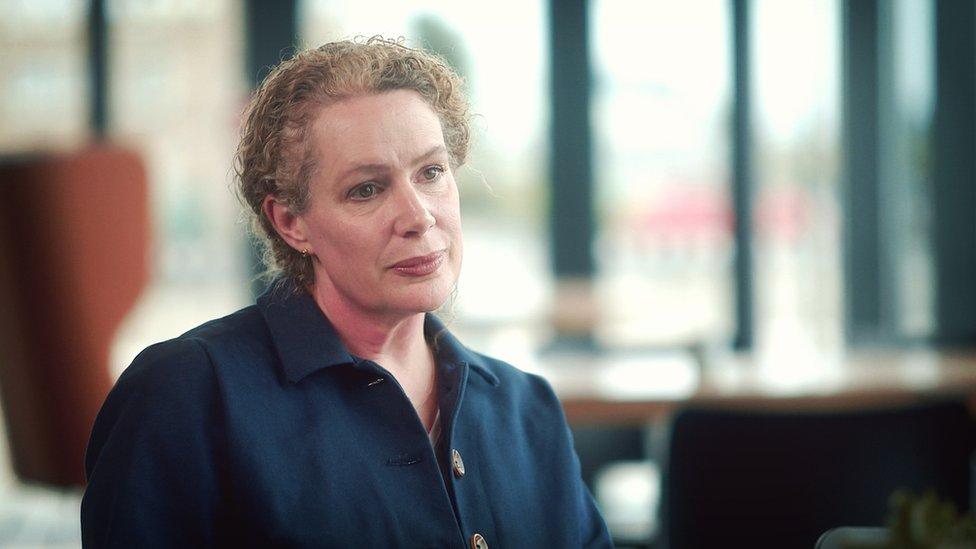
Prof Jude Robinson, professor of health and wellbeing at the University of Glasgow
She said: "Why didn't we look around with all the public health expertise that we have in Scotland and identify Inverclyde - and a number of other communities in Scotland - as being significantly at risk?
"Mitigation and actually acknowledging a community at risk can go a long way to preventing the number of deaths and the community themselves feel valued, supported and do not feel left behind."
Can Inverclyde recover?
Knock-on effects are also starting to become clear, with a 30% surge in children being fed by Inverclyde Foodbank during lockdown, compared to the same time-frame last year.
In many cases the third sector has stepped in to provide vital support to those most in need - including delivering meals, medication and counselling.
Inverclyde council leader Stephen McCabe has praised the local response, saying the council delivered a "joint effort" with charities and has put "structures in place" such as provision of free school meals.
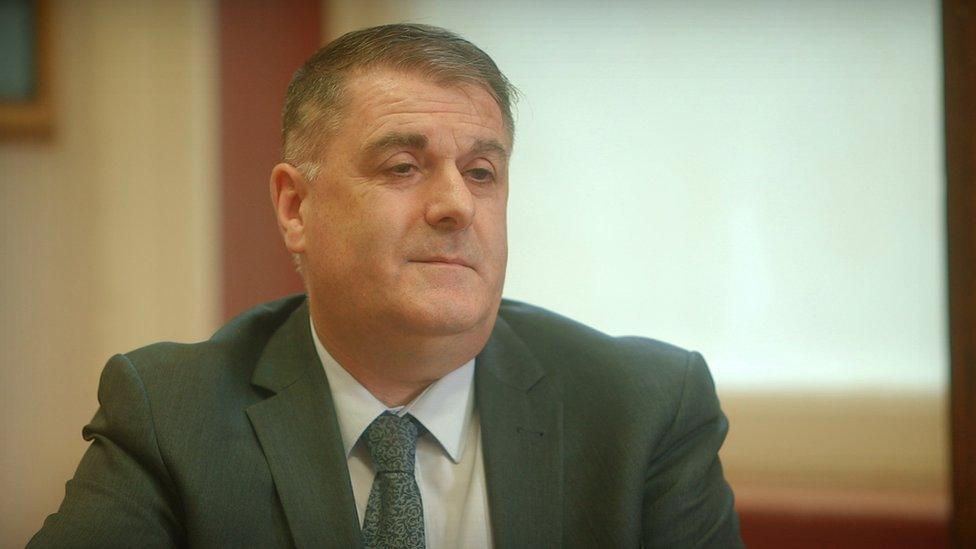
Inverclyde council leader Stephen McCabe
However, the Labour councillor said Inverclyde has suffered "a decade of austerity".
He said: "I've been the leader of this council since 2007, we've been arguing for that period of time for more resources for areas like Inverclyde.
"I think the response locally has been fantastic. I think the strength of our community spirit has been demonstrated."
You can watch more on Disclosure's Scotland's COVID Capital on BBC One Scotland on Monday 17 August at 19:30.
- Published4 May 2020
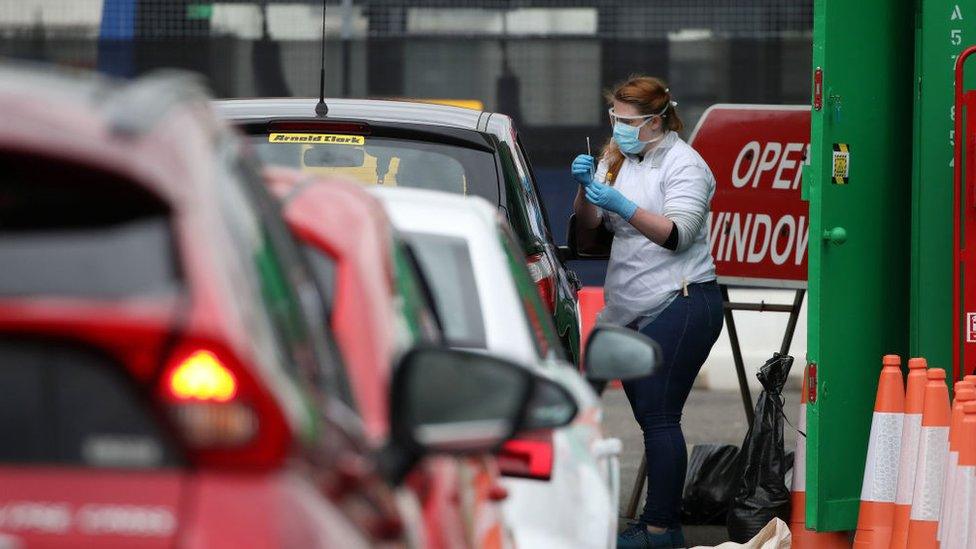
- Published31 July 2020
